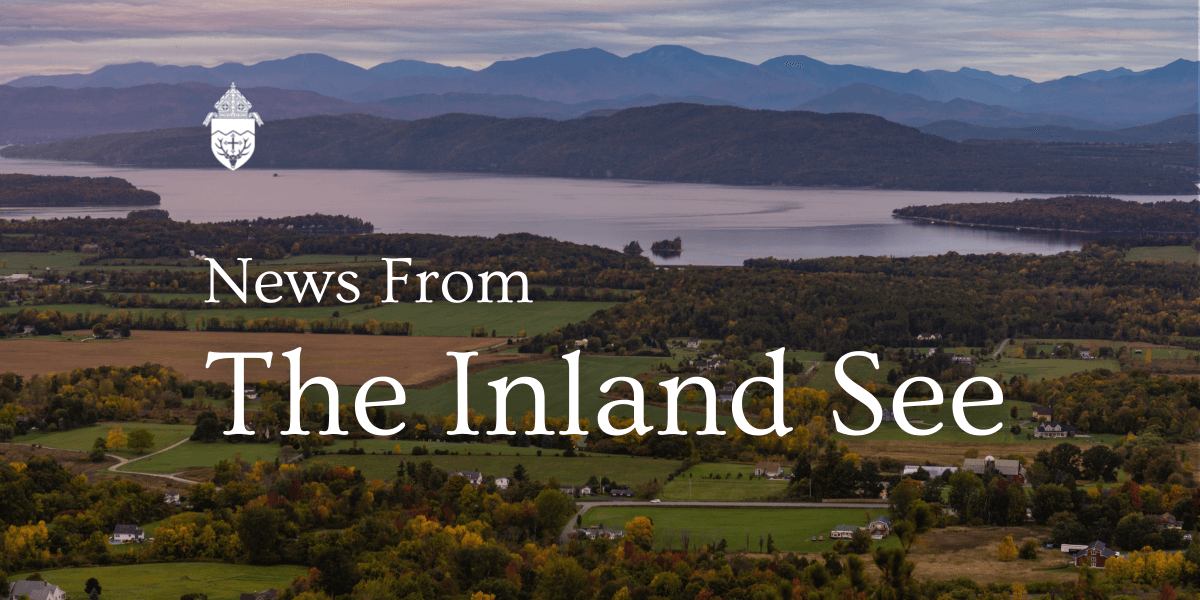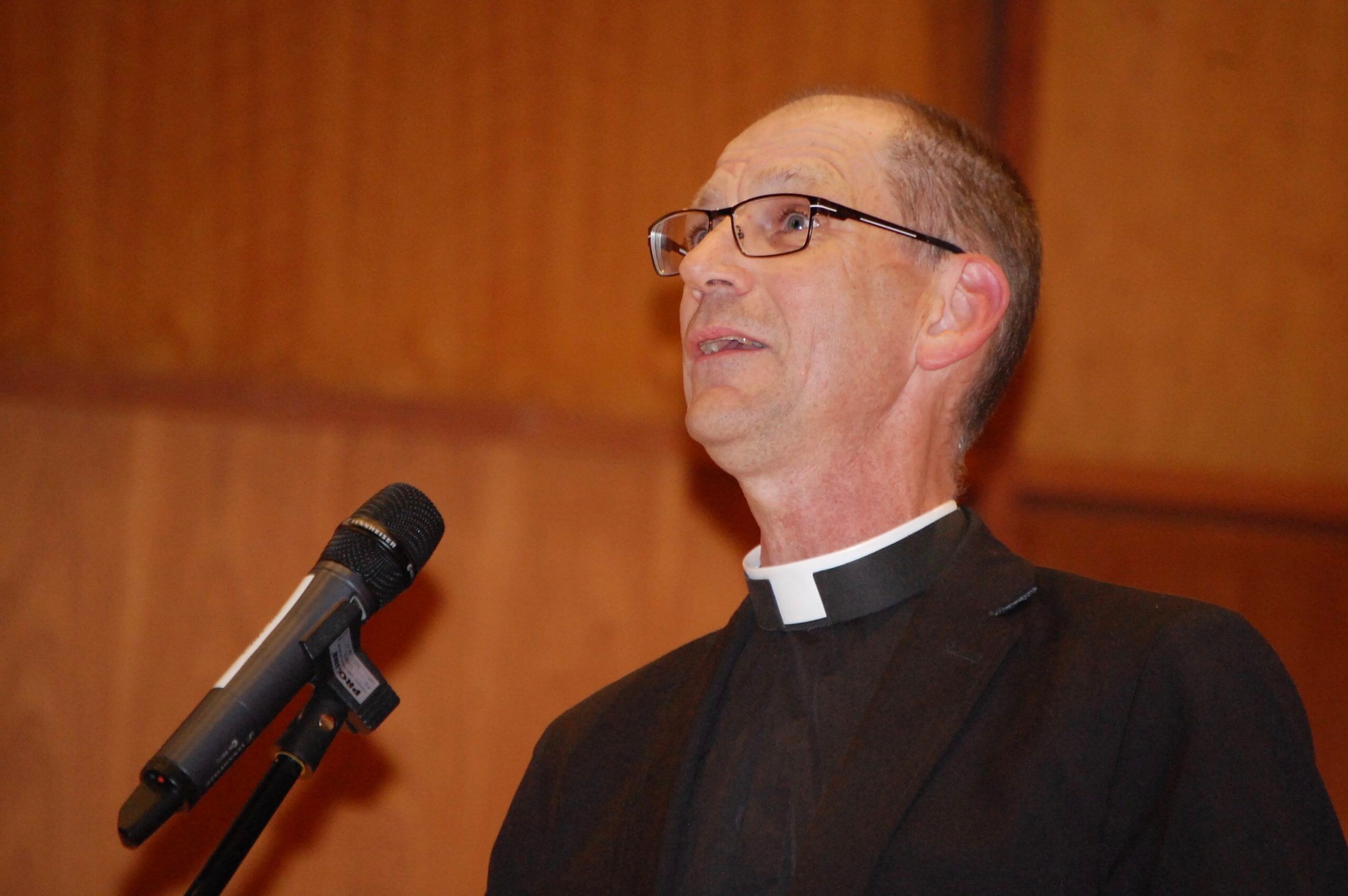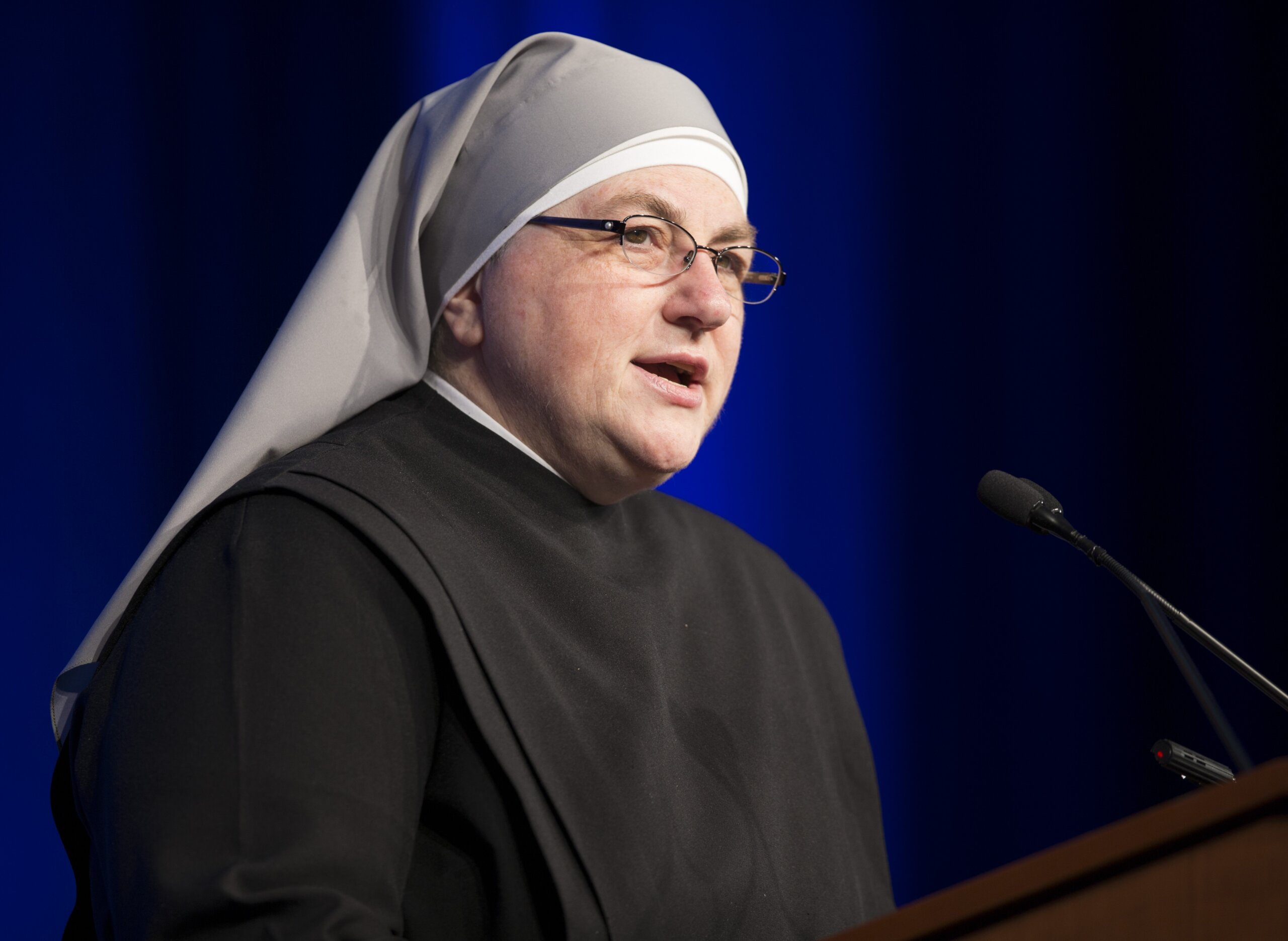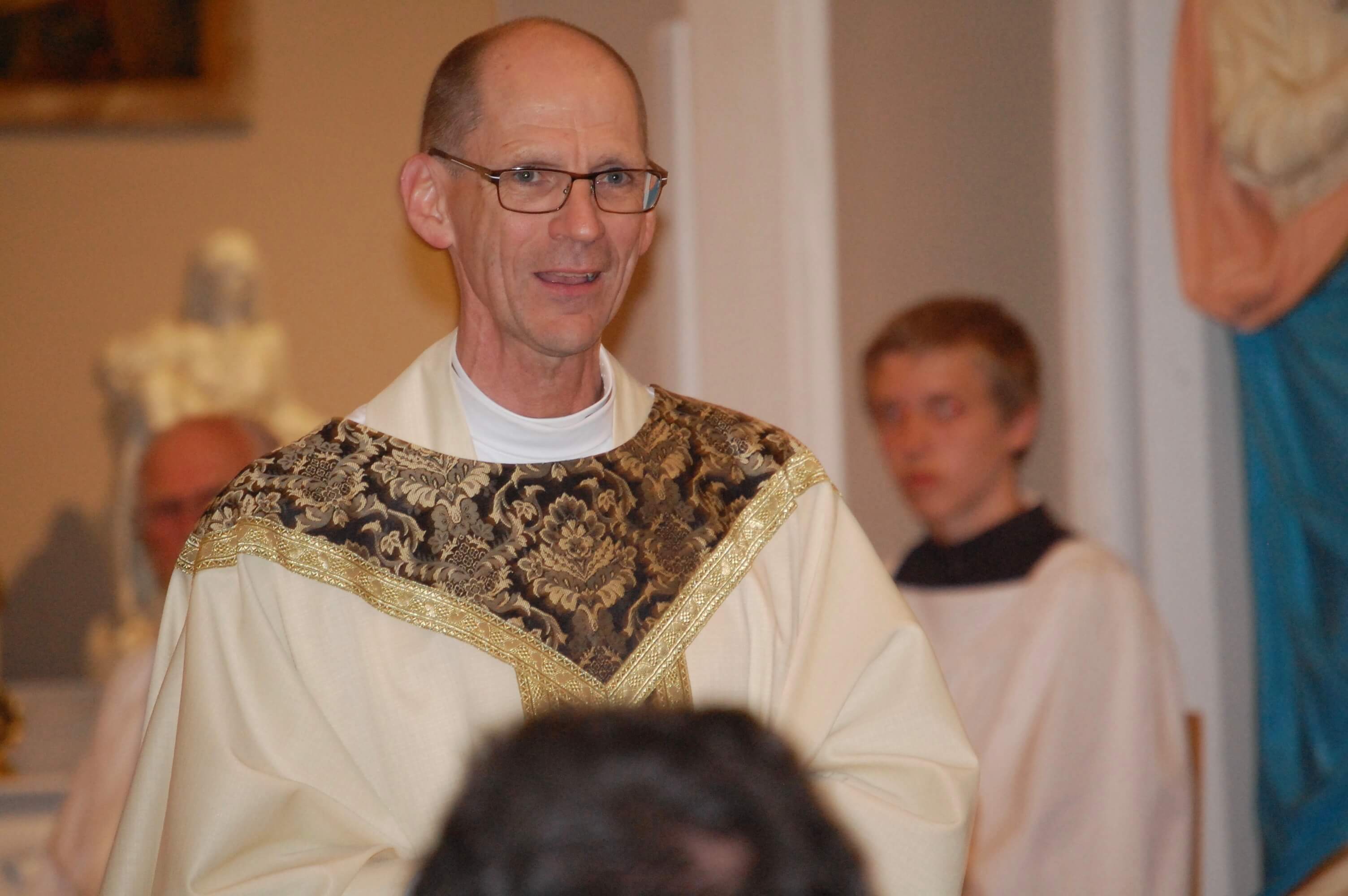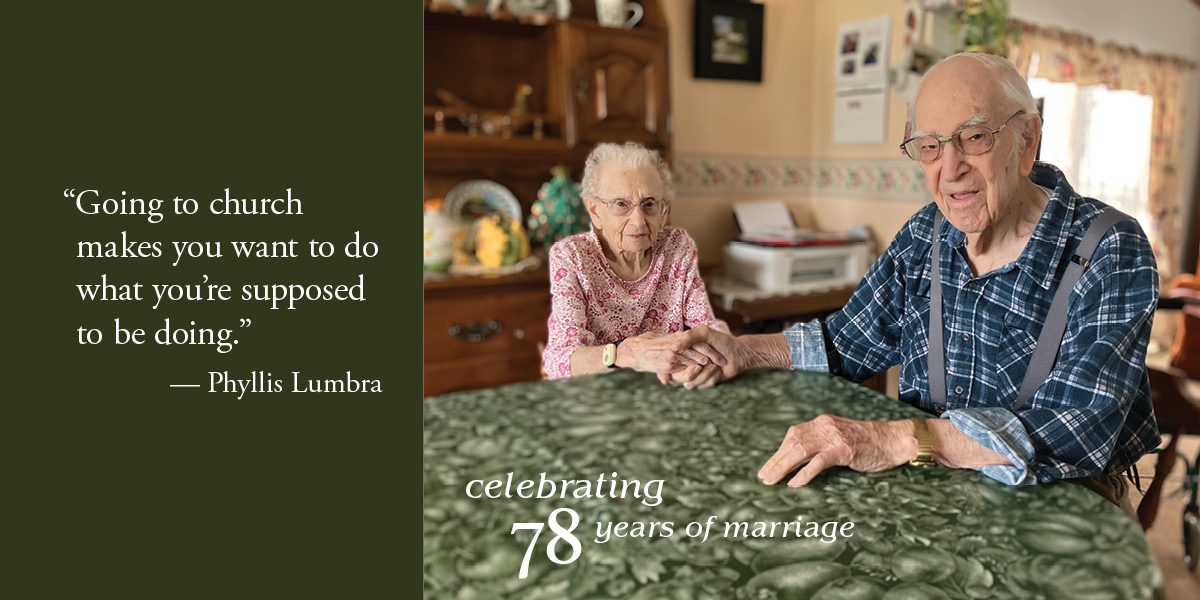
Phyllis Lumbra was a girl of 14 when she had her eye on a certain boy. But her gaze shifted when she first saw Charles Lumbra, the boy’s cousin, while visiting a neighbor.
Charles asked her to go to a dance, and her mother agreed because the neighbor was going too. “And we kept right on going,” she said, explaining that they continued dating.
They were young when they married in 1946 at St. John the Baptist Church in Enosburg Falls. It was a small wedding, followed by breakfast at her mother’s home in Bakersfield. Supper was on the farm in Enosburg with Charles’ family, and the day was topped off that evening with dancing in the Bakersfield town hall.
The honeymoon came later — a weeklong visit to Connecticut where his brother lived.
The couple — who used to enjoy dancing, especially square dancing — “danced our life away,” Phyllis said happily. They liked the 2-step and the waltz, too, and country bands.
Phyllis, 95, and Charles, 99, spoke about their long life together during a visit with a reporter and Father Dan Jordan, their pastor at St. John the Baptist Church — not far from their Enosburg Falls home.
“They are wonderful people. They are always happy,” Father Jordan said. “They are very generous in so many ways and still support the parish.”
During his visit, the pastor presented the couple with a special certificate from the Diocese of Burlington recognizing their 78 years of marriage; and he gave them both communion. “They are a sign of faith, hope and love having been together for 78 years,” he said.
They attribute their long marriage to clean living and hard work. “When we went somewhere, we always went together,” Phyllis said. “And we agree on just about everything.”
When they were able, they always went to Mass on Saturday evening or Sunday morning; now they watch the early morning Mass on television together every Sunday. “Going to church makes you want to do what you’re supposed to be doing,” Phyllis said.
They often pray “the beads” (the rosary) together in their living room, she added.
Charles was born on a farm and spent many years in farm work, but he also worked as a car salesman for a short time in Connecticut and worked in Vermont for a furniture manufacturer. Phyllis, who converted to Catholicism when she was married, cleaned houses and was a factory worker.
The couple has one son, three granddaughters and two great grandsons.
“We get along good,” Charles said, looking at his wife.
He enjoys her cooking — especially the desserts, and they like to watch television together — usually the news — before going to bed early. They used to like going shopping — he pushed the cart for her. “We’d just roam around, we might not buy anything,” Phyllis said, but they enjoyed seeing people and going out for a quick meal.
Asked what he loves most about her, he replied, “Everything.”
Asked the same question about her husband, Phyllis said, “He’s agreeable.”
“You have your ups and downs” in marriage, Phyllis said. “When we were first married, we didn’t have a lot of money. One time my brother-in-law came for supper and I didn’t have money for meat, so we had canned vegetables.”
She canned what she could, and they survived on what they had.
But what they always had in abundance was love. “It’s been quite a run,” Phyllis said.
—Originally published in the Spring 2024 issue of Vermont Catholic magazine.

